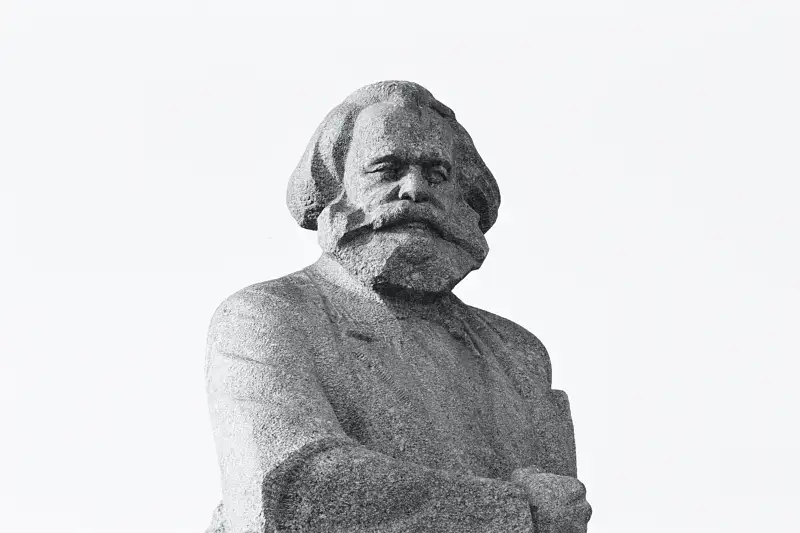Table of Contents
- The Role of Education in Reproducing Social Inequality
- The Ideological Functions of Education
- Preparing Individuals for Roles in the Capitalist Economy
- Critiques and Contemporary Relevance
- Conclusion
The Marxist perspective on education is grounded in the broader theoretical framework developed by Karl Marx and Friedrich Engels, which centers on the analysis of class struggle, the modes of production, and the inherent inequalities within capitalist societies. From a Marxist viewpoint, education is not merely a neutral institution designed to impart knowledge and skills, but rather a mechanism that perpetuates class divisions and maintains the dominance of the ruling class. This essay will outline and explain the Marxist view of education, emphasizing the role of education in reproducing social inequality, the ideological functions it serves, and the ways in which it prepares individuals for their roles in the capitalist economy.
The Role of Education in Reproducing Social Inequality
Class Structure and Education
Marxists argue that the educational system is a reflection of the class structure inherent in capitalist societies. According to this perspective, education serves to reproduce the existing class hierarchy by ensuring that children of the working class remain within their social strata, while children of the bourgeoisie (the ruling class) are prepared to take up positions of power and influence. This reproduction of class structure is facilitated through several mechanisms within the educational system.
One of the key mechanisms is the hidden curriculum, which refers to the implicit lessons that are taught in schools, such as obedience, punctuality, and conformity to authority. These lessons are designed to prepare working-class children for their future roles as compliant workers in the capitalist economy. For instance, Bowles and Gintis (1976), in their seminal work “Schooling in Capitalist America,” argue that the hidden curriculum instills values that are essential for the maintenance of a capitalist workforce. They assert that schools mirror the hierarchical nature of the workplace, with teachers exercising authority over students, akin to managers over workers.
Furthermore, the allocation of resources and opportunities within the educational system is heavily skewed in favor of the affluent. Schools in wealthier neighborhoods typically have better facilities, more experienced teachers, and greater access to extracurricular activities, which enhance the educational experience and future prospects of their students. In contrast, schools in working-class areas often suffer from underfunding, overcrowded classrooms, and a lack of resources, perpetuating educational disadvantages for these students. This disparity ensures that children from privileged backgrounds are better equipped to succeed academically and, subsequently, economically.
The Myth of Meritocracy
The Marxist critique also extends to the concept of meritocracy, which is the idea that individuals succeed based on their talents and efforts. Marxists contend that meritocracy is a myth that serves to legitimize the existing social order. They argue that the notion of meritocracy obscures the structural inequalities that hinder the educational and occupational achievements of the working class. By promoting the belief that success is solely the result of individual effort, the educational system diverts attention away from the systemic barriers that perpetuate social inequality.
Pierre Bourdieu’s concept of cultural capital further elucidates how the education system favors the privileged classes. Cultural capital refers to the non-economic assets that individuals possess, such as language skills, cultural knowledge, and educational credentials, which can be used to gain social advantage. Children from middle and upper-class families are more likely to possess cultural capital that aligns with the values and expectations of the educational system, giving them an inherent advantage over working-class children. This advantage is often mistaken for merit, thereby reinforcing the myth of meritocracy.
The Ideological Functions of Education
Ideological State Apparatus
Marxists view education as part of the ideological state apparatus (ISA), a concept developed by Louis Althusser. According to Althusser (1971), ISAs are institutions such as schools, churches, and the media that serve to perpetuate the ideology of the ruling class. Unlike the repressive state apparatus (RSA), which includes institutions like the police and the military that maintain control through force, ISAs function through ideology and consent. The education system, as an ISA, plays a crucial role in inculcating the dominant ideology and ensuring the acceptance of capitalist values.
Schools, through their curriculum and teaching practices, transmit the dominant ideology by promoting certain values and norms while marginalizing others. For example, the emphasis on individualism, competition, and the pursuit of personal success aligns with the capitalist ethos. Additionally, the content of the curriculum often reflects the perspectives and interests of the ruling class, with little attention given to alternative viewpoints or critical perspectives that challenge the status quo. This ideological indoctrination ensures that individuals internalize the values necessary for the perpetuation of the capitalist system.
The Role of Education in Legitimizing Social Inequality
Education also serves to legitimize social inequality by presenting the existing social order as natural and inevitable. By naturalizing inequality, the education system helps to maintain social stability and prevent resistance to the status quo. This is achieved through various means, including the curriculum, which often portrays history and society from the perspective of the dominant class. For instance, the contributions of marginalized groups may be underrepresented or omitted, reinforcing the idea that their subordinate position is justified.
Moreover, the stratification within the education system itself, through practices such as streaming and tracking, further legitimizes social inequality. These practices involve grouping students based on their perceived abilities, which often correlates with their social background. As a result, working-class students are disproportionately placed in lower tracks or streams, where they receive a less challenging curriculum and fewer opportunities for advancement. This reinforces their marginalization and perpetuates the belief that they are less capable or deserving of success.
Preparing Individuals for Roles in the Capitalist Economy
Vocational Training and the Division of Labor
Get the full article AD FREE. Join now for full access to all premium articles.
View Plans & Subscribe Already a member? Log in.





